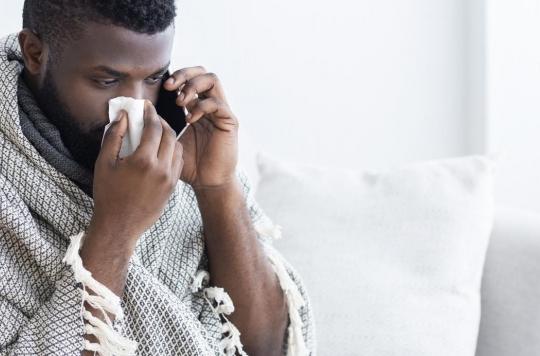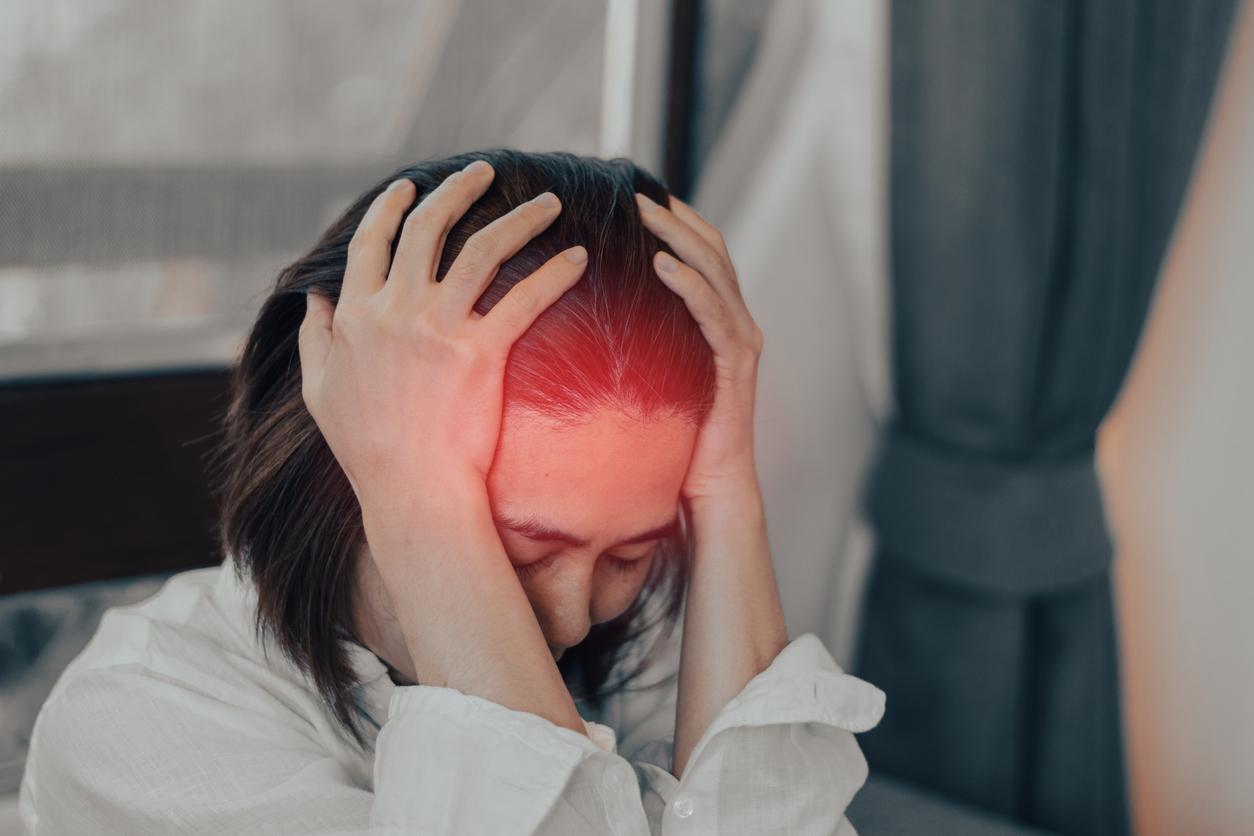Inserm is launching AlloCovid, a telephone service to help identify coronavirus patients and predict the places where contamination could start again.

- AlloCovid, a telephone platform set up by INSERM, can help identify outbreaks of restarting the epidemic
- It is the location of people who call to assess their symptoms and be guided for their care that provides this information.
The post-containment is preparing. While the hospitalization curve due to Covid continues to fall, the National Institute of Health and Medical Research (Inserm) is launching a telephone service on Monday April 27 to help identify Covid-19 patients and plan the places where contamination could start again. AlloCovid is accessible on 0 806 800 540, at the cost of a normal call.
When a patient calls, anonymously, to describe their symptoms (dry cough, fever, body aches, loss of smell or taste, etc.), a virtual telephone assistant asks them various questions. Depending on the patient’s answers, he gives him advice and directs him either to the 15 or to a general practitioner, to be consulted physically or online. The exchange lasts three minutes and makes it possible to identify the places where the virus could start again. Indeed, the callers give their postal code, information destroyed thereafter, assure the designers of the system.
“This localization will allow us, especially during deconfinement, to identify outbreaks and to immediately be able to solve the problems at the level of the municipality to avoid having to reconfine everyone. It can be a very effective weapon.”explains Xavier Jouven, cardiologist and epidemiologist at the Georges-Pompidou hospital in Paris, at France Inter.
A thousand telephone virtual assistants are already ready
“By using this tool, citizens are better informed, but also participate in the fight against the pandemic. Because all the data, anonymized, is reported to the health authorities to ensure real-time monitoring of the epidemic everywhere in France, including the overseas departments and territories, in particular with a view to supporting the release from confinement and immediately detecting potential sources of resurgence”, he enthuses with the Parisian.
A thousand virtual telephone assistants are already ready, capable of answering a thousand simultaneous calls from individuals. If necessary, Inserm can double or triple the number of robots to respond to more calls.
Once the pandemic is over, AlloCovid could then be offered to transplant patients or those with kidney failure. The voice robot could call them regularly to provide medical follow-up and automatically detect worrying signs.
An alternative to the controversial government tracing app
But in the meantime, this system presents itself as an alternative to the digital tracking application StopCovid proposed by the government. Very controversial, this application was debated Tuesday, April 28 in the National Assembly. In detail, Stop Covid is an application to be installed on a smartphone. Once downloaded, it would warn users who have been in contact with a patient who tested positive for coronavirus. The latter could then be screened and taken care of as soon as possible or confined, even if they do not develop symptoms.
However, this system implies that the person tested positive declares it and agrees to disseminate this information to strangers. For the CNIL, volunteering is the best guarantee of compliance with the General Data Protection Regulations (GDPR) because, of course, anonymity will be required. It will therefore be necessary to inform users on several points: “What data is used, by whom, with whom is it shared, for what purpose, for how long. Care must be taken that there is no pre-ticked box”, explains the CNIL.
However, the vagueness still remains as to the databases to be used to trace the thread of people crossed. If the application should not ask for any personal data such as the marital status or the user’s telephone number, nothing has been decided yet.
In addition to the concern around a possible diversion of information to other uses, some doubt the effectiveness of such a system. In effect, “Google recognizes that the data harvesting mechanisms of Android or Google Maps are not built to provide robust, high-quality records for medical purposes and cannot be adapted for this purpose”. details the CNIL.
In addition, StopCovid assumes that all French people have a smartphone which they never part with. Gold, “25% of French people do not have a smartphone and this rate is higher among those over 70 (44%) (…) There is also the question of digital skills and that of white areas”, assures Marie-Laure Denis, president of the CNIL. Finally, we should be able toset up a testing of patients who have the slightest symptom or even who ask to be tested”, recalls Professor Jean-François Delfraissy, doctor specializing in immunology and president of the National Consultative Ethics Committee. He wonders : “Will we have the capacity to test contact cases very widely? For now, I reserve my answer.”

.
















